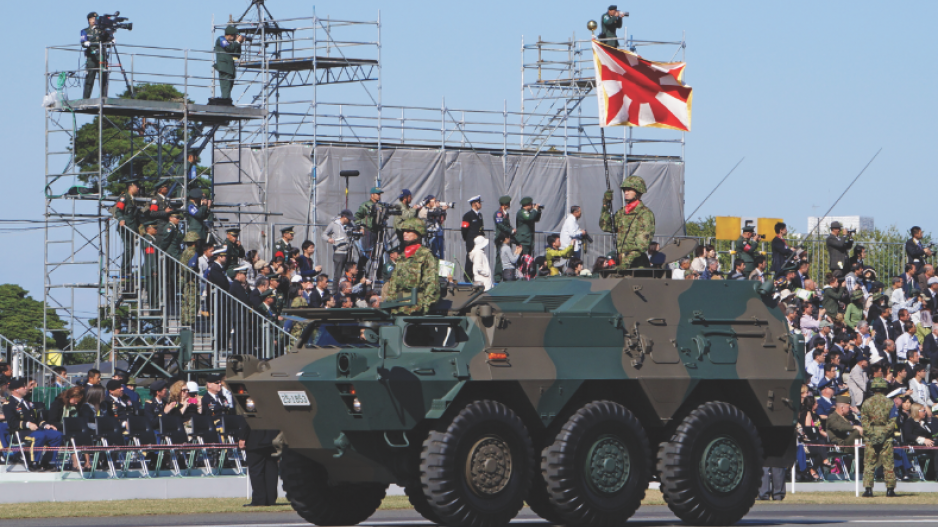Canadian diplomats and other prominent visitors to Japan in recent months have noted the regularity with which their Japanese counterparts raise security issues, whatever the central topic of conversation
Japan is increasingly looking to enhance security co-operation with the countries with which it signs trade and investment deals.
Tokyo’s moves to couple trade and military alliances are a reaction to China’s growing economic and military power and Beijing’s aggressive backing of its claims to ownership of disputed islands and shoals in Asian waters, including Japan’s Senkaku Islands.
While there is no implication that Tokyo considers the two tracks tied together and that it will not agree to one without the other, the recent coupling of economic and security agreements is striking.
These two elements framed the script of Japanese Prime Minister Shinzo Abe’s visit to Australia in July, when he and his counterpart Tony Abbott signed a free trade economic partnership agreement and also a military pact with the purpose of promoting “peace, prosperity and the rule of law” in Asia.
The themes were the same when India’s new prime minister, Narendra Modi, visited Tokyo in September. At the Tokyo summit Abe pledged to double Japanese investment in India within five years and to raise public and private investment in India’s infrastructure, especially high-speed railways and other transportation systems. The two sides agreed to boost co-operation on nuclear energy production, and India pledged to provide Japan with rare-earth minerals, vital for the manufacture of mobile phones and other high-tech products. That market is now dominated by China, and Beijing has shown willingness to embargo exports in order to put pressure on Tokyo in diplomatic disputes.
But the headlines of the Modi visit focused on the accompanying military agreements by which the two leaders “recognized the enormous future potential for transfer and collaborative projects in defence equipment and technology between the two countries.” Abe and Modi also agreed their forces should hold regular training exercises in maritime defence.
Late last month Canada signed a free trade agreement with South Korea, Ottawa’s first such pact with an Asian country. There are hopes this will accelerate negotiations with Japan for an economic partnership agreement, which started early in 2012 and has gone through six bargaining sessions.
As yet, there has been no direct linking by Tokyo of the agreement to ease trade and investment barriers with a parallel enhancement of security relations between Canada and Japan. However, Canadian diplomats and other prominent visitors to Japan in recent months have noted the regularity with which their Japanese counterparts raise security issues, whatever the central topic of conversation.
Since he returned to the post of prime minister in December 2012, Abe has made economic reform and the normalization of Japan’s military role the central themes of his administration. The constitution imposed on Japan after the Second World War limits the uses of its military forces to the defence of the homeland. This provision has led to increasing frustration among many Japanese as well as Tokyo’s allies, especially the United States, who want to see the Japanese forces pulling their weight in efforts to promote security and stability in Asia.
In a series of measures, culminating in a reinterpretation in July of the constitution’s pacifist Article 9, Abe has lifted the ban on weapons exports and says he will deploy Japanese forces abroad as part of collective self-defence operations with allies.
Australia has been the first to enthusiastically grasp the opportunity of Japan’s enhanced status as a security partner. Immediate results are Canberra’s moves to buy up to 10 Soryu submarines from Japan and the expansion of Japan’s use of Australian training grounds for its troops.
China has reacted angrily to the enhanced military relations, but Abbott insists the pact with Tokyo is not aimed at Beijing, and he expects Australia’s critically important trade relationship with China to continue unhindered. •




